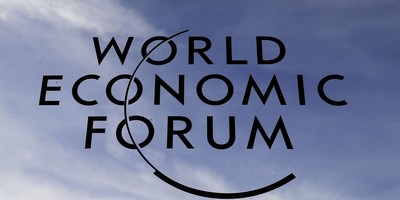WASHINGTON -- There is now a minor but raging academic debate taking place over the effect of an economic downturn on your health.
In the traditional view, unemployment can cause a kind of recession flu -- a funk that leads to stress smoking, unhealthy comfort foods and that problematic flu remedy, alcohol. Studies have tied personal financial crises to heart disease, depression and suicide.

There is, however, an unexpected counterargument. Studying decades of public health data, Christopher Ruhm of the University of North Carolina at Greensboro confirmed that a recession increases mental health problems. But he found that physical health actually improves -- about a half-point decline in the death rate for every point of increase in the unemployment rate. During tough economic times, people seem to increase exercise, take fewer car trips, reduce smoking and cook healthier foods at home -- choosing to control the remaining things in their lives they are capable of controlling.
There is a parallel debate about the influence of economic hard times on the nation's moral health. Without question, the most acute social problems -- crime, illegitimacy, etc. -- are concentrated in areas of highest poverty. But sociologists and criminologists have long pondered an apparent paradox. During the Great Depression -- with about a quarter of Americans out of work -- crime and divorce declined. During the relative prosperity of the 1960s and 1970s, crime rates shot up and families broke down.
Recessions and depressions are brutal beasts that stalk the stragglers, especially retirees and the poor. There is too much inherent suffering during a recession to ever welcome it. But times of economic stress, it appears, can also be times of cultural renewal. "One reasonable hypothesis," argues James Q. Wilson, "is that the Depression pulled families together, and this cohesion inhibited crime." Many Americans who struggled through the Depression adopted a set of moral and economic habits such as thrift, family commitment, savings and modest consumption that lasted through their lifetimes -- and have decayed in our own. The Depression generation controlled the things they could control -- including their own consumption and character.
Recommended
We see hints of this type of reaction to our current recession, which has such clearly moral causes -- the burst of a bubble inflated by irresponsible debt, consumerism and unaccountable risk-taking. During an economic crisis, Americans return to a language of morality. Perhaps excess and recklessness are vices that deserve social stigma. Perhaps frugality and prudence are personal virtues as well as practices that prevent economic collapse. Perhaps there is a distinction between securing our needs and being dominated by our wants.
It would be difficult for me to recommend asceticism, writing on my miraculous MacBook while snacking on some delightful artisanal cheeses (I am kidding about the cheese part). But many Americans in this downturn seem to be finding that less costly entertainments such as family time are the most rewarding, that meals at gourmet restaurants are not always the most satisfying, and that previously outsourced chores -- from landscaping to parenting to hair dyeing -- might be better performed themselves. (In commenting on this trend to The New York Times, however, one hairstylist cautions, "They do come in sometimes with some pretty orange hair.")
Suspicions about consumerism are being powerfully reinforced by economic realities along with environmental concerns. But the rejection of materialism is finally rooted in a spiritual view of human nature. Pope John Paul II warned of making "people slaves of 'possession' and of immediate gratification, with no other horizon than the multiplication or continual replacement of the things already owned with others still better." A less material orientation in life (assuming basic material needs are met) actually expands our horizons -- like an escape from the dungeon of our own desires.
It has always been a quiet fear of capitalists that the success of free markets would eventually undermine the moral basis for free markets -- that decadent prosperity would dissolve values such as prudence and delayed gratification. "Capitalism," argued economist Joseph Schumpeter, "creates a critical frame of mind which, after having destroyed the moral authority of so many other institutions, in the end turns against its own."

But capitalism may be self-correcting in this area, as it is in many others. A recession causes suffering that can overwhelm hope. It can also lead to the rediscovery of virtues that make sustained prosperity possible -- and that add nonmaterial richness to our lives. Sometimes grace can arrive through an unexpected door.

























Join the conversation as a VIP Member